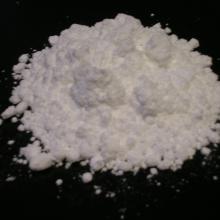Submitted by ivars211 on
KClO3
Potassium chlorate is a very common oxidiser in pyrotechnics, even though it has some treacherous properties and other oxidisers would sometimes be safer to use. Part of the reason of its popularity in commercial pyrotechnics is that it is cheap and easily available. The large scale production of this compound made the first quality colored fireworks possible, about a century ago. Potassium chlorate is a stronger oxidiser than potassium perchlorate. In some special cases it can be used safely instead of potassium perchlorate. The only use in display fireworks where Potassium Chlorate has no suitable alternative is as an oxidiser in the production of coloured smoke.
Potassium chlorate can be prepared at home. For this purpose, sodium chlorate is prepared first by electrolysis. It may also be obtained as a herbicide in some countries (France, for example) Then, by double decomposition with potassium chloride, potassium chlorate is prepared from this solution. The product is recrystallised, dried and powdered. Other means of manufacturing Potassium chlorate include boiling a mixture of calcium hypochlorite and potassium chloride, and filtering while boiling. The crystals will form upon cooling. This reaction also produces calcium chloride which can be scraped off the top of the solution.
Potassium chlorate is toxic, and breathing protection should be worn when handling fine powder. Compositions made with potassium chlorate tend to be more sensitive than those based on nitrates and perchlorates and should therefore be handled accordingly. Potassium chlorate, or any chlorate for that matter, should never be used in combination with Ammonium perchlorate or most other Ammonium compounds.Additionally, it is widely considered incompatible with sulfur and sulfides. Mixtures containing both are very sensitive and may spontaneously ignite. In general, when using chlorates great care should be taken to avoid contamination of other compositions or tools. Also read the general safety page for more information on this problem.
Shimizu Blue smoke starComposition |
Shimizu Green smokeComposition |
Shimizu Green smoke starComposition |
Shimizu H3Composition |
Shimizu Red smokeComposition |
Shimizu Red smoke starComposition |
Shimizu Violet smokeComposition |
Shimizu Violet smoke starComposition |
Shimizu Whistle mix #2Composition 25 Gallic acid |
Sparkler #12Composition |




